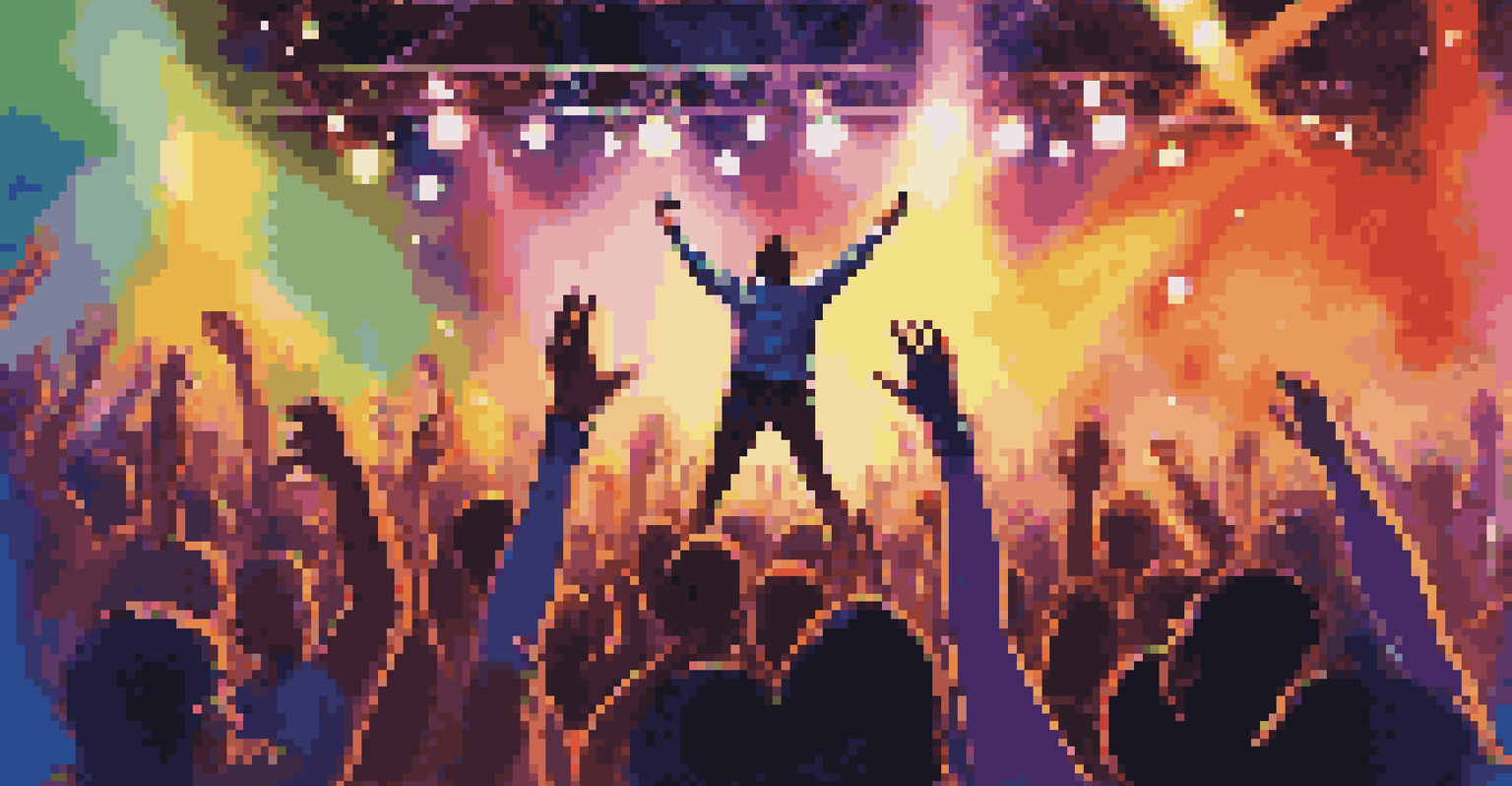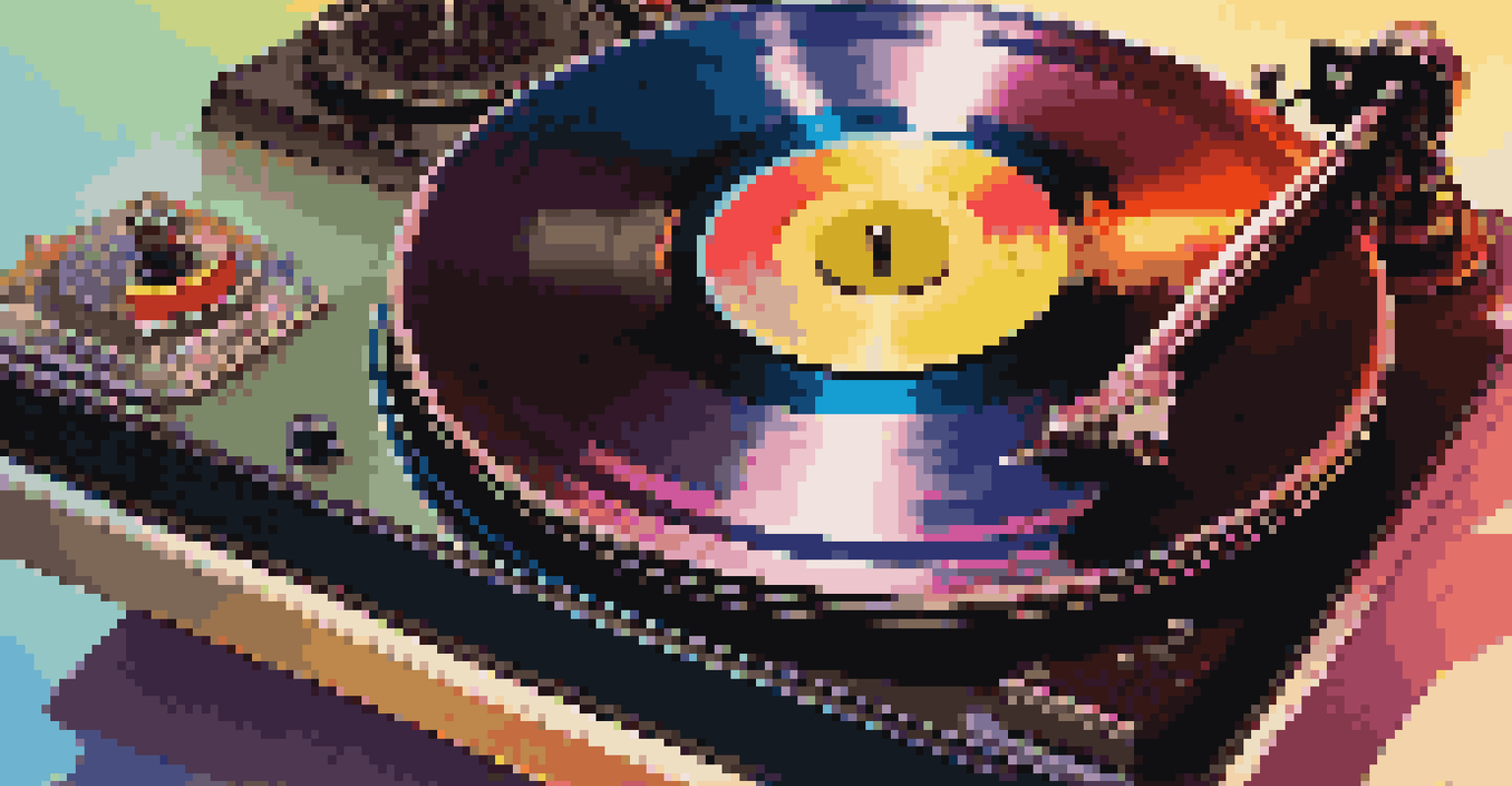Incorporating Storytelling into Your Music Promotions

Understanding the Power of Storytelling in Music
Storytelling has been an essential part of human culture for centuries, and in music, it plays a crucial role. Every song has a story, whether it's about love, heartbreak, or overcoming obstacles. By tapping into these narratives, you can create a deeper emotional connection with your audience.
Music can change the world because it can change people.
When listeners resonate with a story, they’re more likely to share it, which can amplify your reach. Think about your favorite songs; odds are, the ones you love the most have a poignant story behind them. This connection can turn casual listeners into loyal fans.
Incorporating storytelling into your music promotions not only highlights your artistry but also showcases your authenticity. Fans appreciate artists who are relatable and genuine, making storytelling a powerful tool in your promotional arsenal.
Crafting Your Unique Artist Narrative
Every artist has a unique journey, filled with experiences that shape their music. Start by identifying what makes your story distinctive—perhaps it’s your background, influences, or the challenges you've overcome. This narrative sets the foundation for your promotional efforts.

Once you have your story, weave it into various aspects of your branding, from social media posts to music videos. For instance, sharing anecdotes about your songwriting process can give fans an insider's look at your artistry. This transparency invites listeners to feel a part of your journey.
Storytelling Builds Emotional Bonds
Incorporating storytelling into your music creates deeper emotional connections with listeners, turning them into loyal fans.
Remember, your narrative should evolve as you do. Keep it fresh and relevant, sharing new chapters as your career progresses. This keeps your audience engaged and invested in your story, making them more likely to support your music.
Using Social Media to Share Your Story
Social media platforms provide an incredible opportunity to share your story with a wider audience. Use them to highlight key moments in your journey, from recording sessions to personal milestones. Engaging posts can spark conversations and encourage fans to share their own stories in response.
The story is the thing. The story is the vehicle through which we connect with people.
Consider using Instagram Stories or TikTok to give behind-the-scenes glimpses into your life as an artist. These formats allow for spontaneity and creativity, making your story feel more immediate and personal. The key is to be authentic—let your personality shine through.
By consistently sharing your narrative on social media, you reinforce your brand identity. Fans who connect with your story are more likely to engage with your music, attend your shows, and support your future projects.
Creating Compelling Visual Content
Visual storytelling can complement your music promotions beautifully. Music videos are a prime example of how visuals can enhance the narrative behind a song. They allow you to illustrate your story in a way that resonates with viewers and draws them into your world.
Beyond music videos, consider creating cover art that reflects the themes of your songs. Imagery that aligns with your narrative can amplify the emotional impact of your music. Even simple behind-the-scenes photos can provide fans with context and deepen their connection to your story.
Social Media Amplifies Your Narrative
Utilizing social media platforms allows artists to share their unique journeys, engaging fans and encouraging them to connect.
Moreover, engaging visuals can increase the shareability of your content. When fans see compelling imagery, they’re more likely to share it across their networks, broadening your reach and attracting new listeners.
Engaging Fans Through Live Performances
Live performances offer a unique platform to share your story in real-time. When you perform, you have the opportunity to connect with your audience on a personal level, which can be incredibly powerful. Consider sharing anecdotes or insights between songs to give fans a glimpse into your journey.
For instance, you could discuss the inspiration behind a specific track or recount a pivotal moment in your career. This makes the experience more intimate and memorable, encouraging fans to feel more connected to both you and your music.
Additionally, live interactions, like Q&A sessions or meet-and-greets, can further enhance this connection. Engaging with fans in these settings allows them to see the person behind the music, deepening their loyalty and support.
Collaborating with Other Artists
Collaborations can be a fantastic way to tell a broader story that encompasses multiple perspectives. When you work with other artists, you not only tap into their audience but also enrich your narrative tapestry. This can introduce new themes and experiences that enhance your own story.
Consider collaborations that align with your brand and artistic vision. When both artists share a similar narrative or complement each other’s styles, the resulting synergy can create something truly special. This collaborative storytelling can resonate powerfully with audiences.
Collaborations Enhance Your Story
Partnering with other artists enriches your narrative and introduces new themes, broadening your audience and storytelling impact.
Moreover, behind-the-scenes content from these collaborations can be a rich source of storytelling material. Sharing the process of creating together can captivate fans and give them a sense of being part of that journey.
Measuring the Impact of Your Storytelling
To understand the effectiveness of your storytelling in music promotions, it’s essential to track your engagement metrics. Look at social media interactions, streaming numbers, and concert attendance to see how fans are responding to your narrative. This data can provide insight into what resonates most with your audience.
Additionally, consider gathering feedback directly from your fans. Surveys or informal conversations can offer valuable perspectives on how your story impacts their connection to your music. This information can guide future promotions and help you refine your narrative.

Ultimately, the goal is to create a compelling experience that leaves a lasting impression. By measuring the impact of your storytelling, you can make informed decisions that enhance your promotional strategy and deepen your relationship with fans.